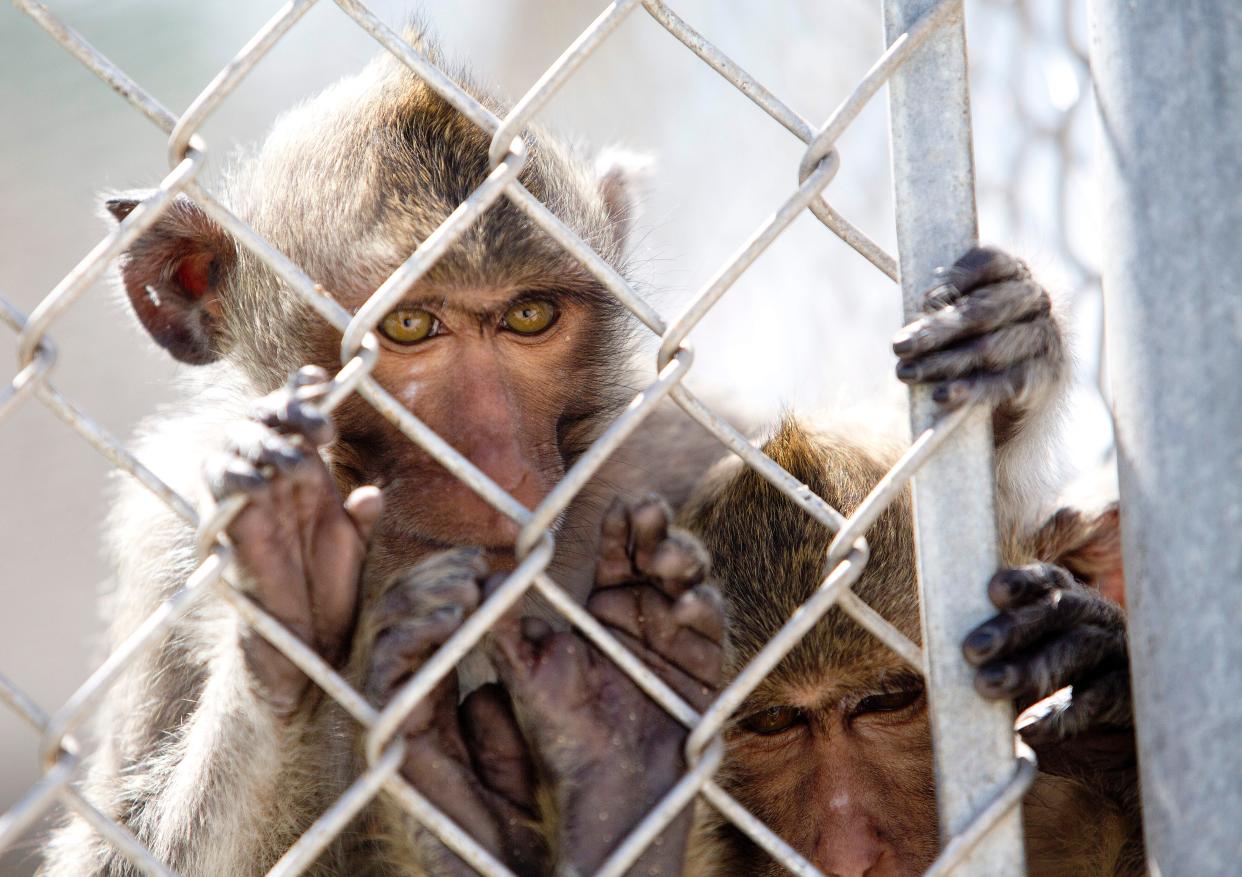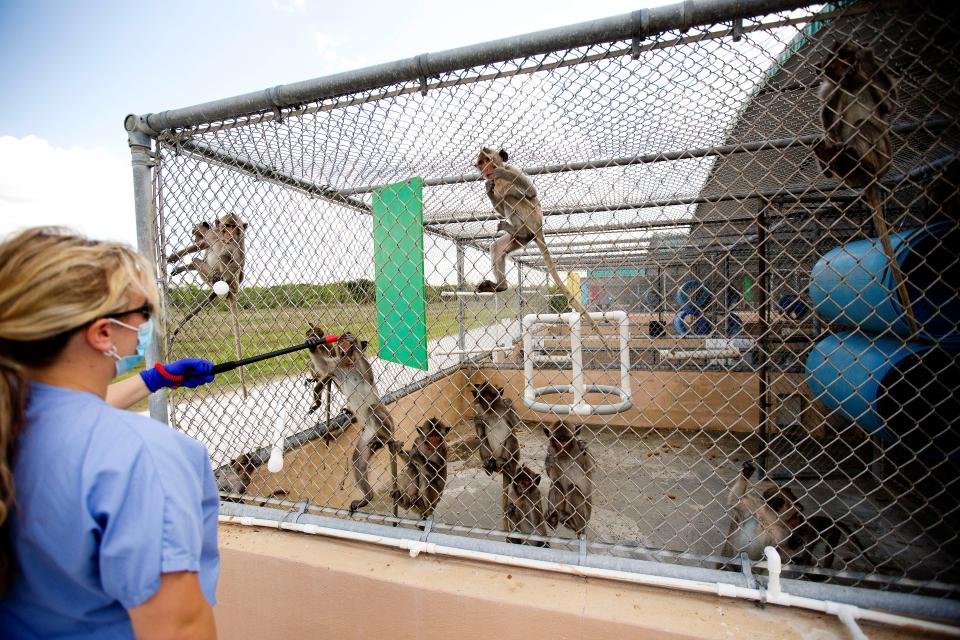Guest opinion: Activists should stop monkeying around with lifesaving research

Alzheimer's research is a matter of life and death. But it also involves a lot of monkey business — literally.
The scientists working to cure Alzheimer's rely heavily on monkeys, because humans and monkeys — and only monkeys, not any other animals — share extremely similar pre-frontal cortices, the part of the brain that controls memory, concentration and personality.
Nonhuman primates are the key to understanding and defeating the fatal dementia, which currently afflicts about 6 million Americans — and is projected to plague 14 million of us by 2060, unless a breakthrough is achieved.
Unfortunately, misguided animal activists are making scientists' jobs much harder by pressuring lawmakers to preclude using nonhuman primates to develop therapeutics for diseases. If they get their way, they'll slow down — and potentially prevent — medical discoveries that could save millions of American lives.
The U.S. Food and Drug Administration, similarly to other regulatory agencies around the world, reviews pre-clinical animal research data to evaluate the safety and efficacy of drugs, medical devices and other therapeutics before approving them for manufacturing and distribution to American consumers. Until animals respond positively to a potential treatment in pre-clinical evaluation, researchers cannot conduct clinical trials on human subjects.

That's especially true when it comes to hard-to-treat neurodegenerative diseases like Alzheimer's, as well as neurodevelopmental disorders like autism and psychiatric illnesses like anxiety or depression. The brain chemistry of primates — human and nonhuman alike — is so complex that alternative methods of testing, such as computer modeling, could never deliver the same degree of accuracy scientists get from monkeys.
That's why just last year New York University researchers tested a new Alzheimer's therapy on elderly monkeys. The treatment led to 59% fewer plaque deposits of the protein associated with Alzheimer's and stopped the disease from progressing. Researchers are hoping to begin human trials soon.
Of course, animals aren't just helpful for studying brain disorders. For decades, they've played a crucial role in nearly every medical breakthrough, including COVID-19 vaccines and treatments. Researchers in the public and private sector worked collaboratively for years to perfect the mRNA technology behind the vaccines from Pfizer-BioNTech and Moderna, relying on animals for their tests. The successful vaccination of nonhuman primates paved the way for Food and Drug Administration approval.
The FDA has also recently approved several new COVID-19 treatments that prevent severe illness once someone gets the virus. Pfizer successfully trialed its antiviral pill in December 2020 with animals. That opened the door to human trials in March 2021. The now-approved drug reduces hospitalization and death by 89%.
Animals were so essential to scientists' fight against COVID-19 that demand for nonhuman primates outstripped supply. Some scientists were even forced to slow down their research as they tried to acquire enough research monkeys.
The federal government understands the value of human life and the crucial role that nonhuman primates play in protecting it. Both Democratic and Republican administrations have spent millions of dollars making research animals available at the seven primate research centers that house our nation's supply of research monkeys. Scientists at the U.S. Department of Defense, Centers for Disease Control and Prevention, National Institutes of Health and other federal agencies humanely use animals in their research to control biological threats like COVID-19 and the H5N1 "bird" flu. Theirs is no small task; they are responsible for protecting the American public against diseases even as anti-animal research groups seek to establish a climate that is hostile to their work.
Animal research continues to represent one of our best hopes for discovering lifesaving medical treatments. Even the most powerful supercomputers cannot simulate how a potential vaccine, drug or therapy will interact with the whole human body. We need nonhuman primates and other research animals, followed by human clinical trials, to discern that kind of information.
In the next several decades, researchers will likely find new breakthroughs to beat back some of the most stubborn diseases humanity faces. But they will likely still need animals to do it.
Matthew R. Bailey is the president of the Foundation for Biomedical Research (www.fbresearch.org).
This article originally appeared on Fort Myers News-Press: Alzheimer's research relies heavily on monkeys for studies related to brain

